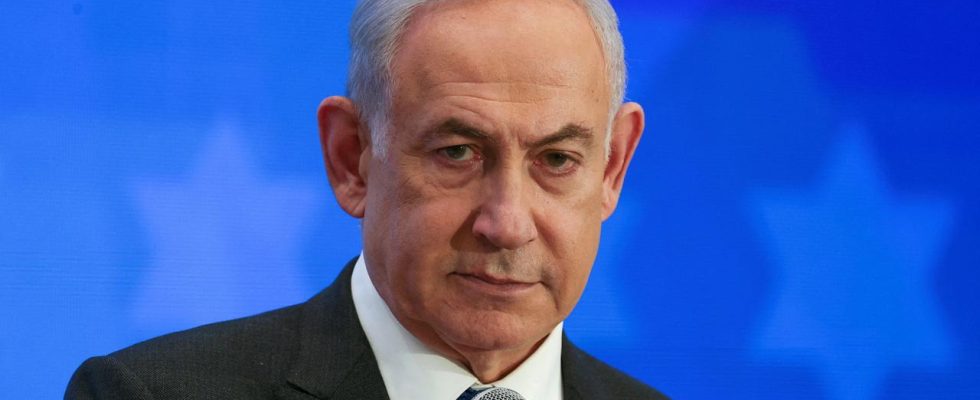After Iran’s major attack, Israel made it clear that it wanted to react decisively. It is unclear when and, above all, how, because escalation should be avoided. Experts see several possibilities.
“Do you want to win? Are you ready to fight” – “Yes,” the young men answer their head of government in chorus. Benjamin Netanyahu met with new army recruits today and spoke of ferocious enemies who have attacked Israel. “We will strike back forcefully and mercilessly and we will be victorious.”
Netanyahu is determined
Netanyahu then listed: Hamas in the Gaza Strip, Hezbollah in Lebanon – Iran is always behind these enemies of Israel. The Israeli Prime Minister emphasized that his country is determined to defend itself and win. Israel’s determination to respond to last weekend’s Iranian attack has been made clear by the country’s political and military leadership.
The army now presented debris from an Iranian ballistic missile and military spokesman Daniel Hagari underlined, “The direct bombardment of Israel with 110 ballistic missiles will not go unpunished. We will respond. Time, place, scope – that is what we decide.”
Analysts see several options
According to military experts, Israel has several options. One of them is a direct attack on Iranian territory. However, this would entail the considerable risk of a renewed Iranian attack and entry into an escalation spiral, as the former officer and current analyst at Tel Aviv University, Orna Mizrahi, said in an interview with the television station KAN.
“Another option is to respond in a way that is not a classic direct response, but a response that is nevertheless understood because it is directed against Iranian interests. This does not necessarily require a direct strike against Iran itself . This can also take place somewhere else.”
Experts: Netanyahu should not ignore allies
This refers to possible Israeli military strikes against Iran’s allies, such as Hezbollah in Lebanon or various militias in Syria and Iraq. From the perspective of experts, such attacks would have a lower risk of escalation than a direct attack by the Israeli army on Iran. Israel’s partners, especially its most important ally, the USA, are warning of a conflagration. The government in Jerusalem should not ignore this, believes ex-general and former national security advisor Yaakov Amidror.
“We have to take into account what our very good friends in the US say, but ultimately the responsibility for Israel’s security lies with our prime minister and not the US president,” Amidror said. He doesn’t believe there will be a regional war. “Because the Iranians now know their limits after the great failure of their attack on Israel.”
Meanwhile, fighting in the Gaza Strip continues. The Israeli army operates, among other things, in the center of the coastal area and continues to plan an offensive against the city of Rafah.
Tim Aßmann, ARD Berlin currently Tel Aviv, tagesschau, April 16, 2024 6:42 p.m

